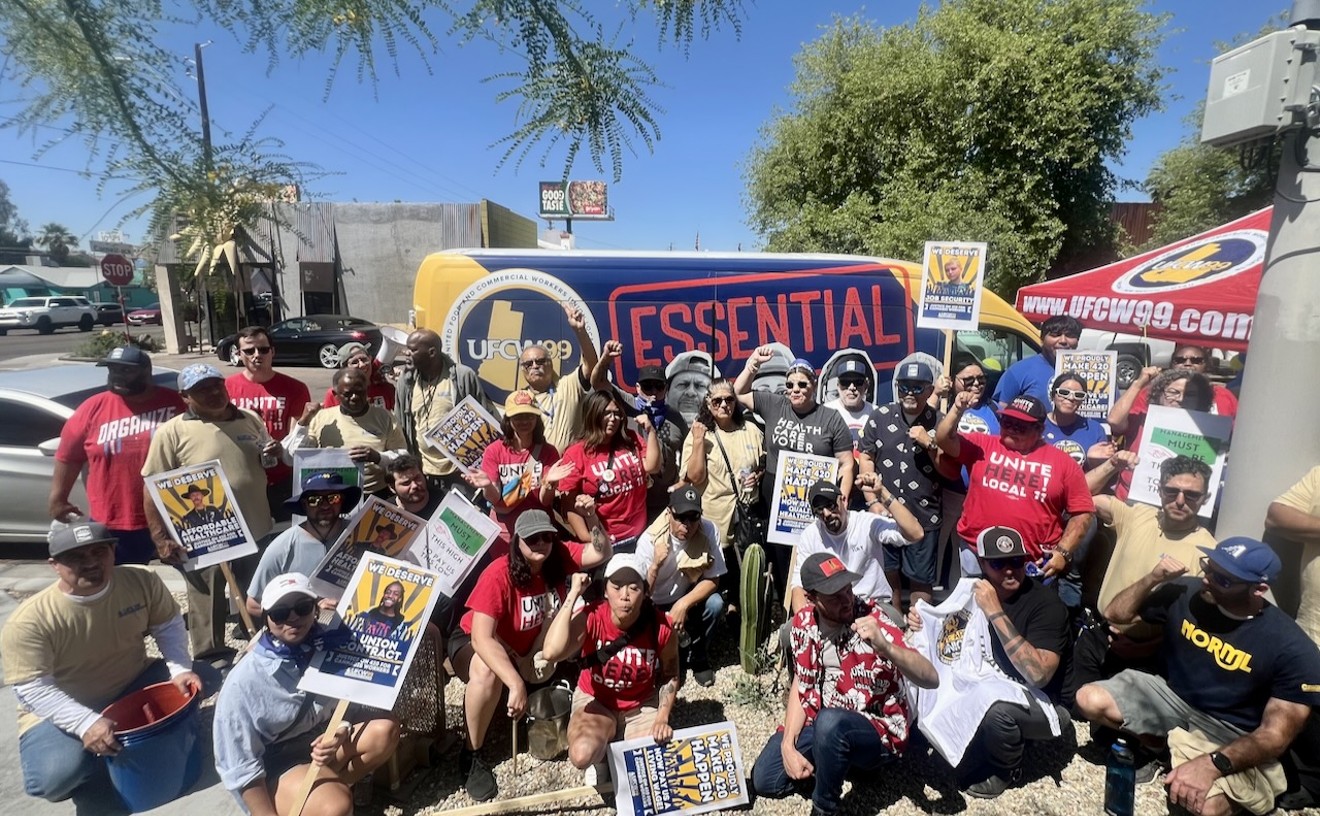The story details how the school attempted to establish a second headquarters in Phoenix so it could keep getting federal funding from the GI Bill. Ashford came out looking pretty bad, but Arizona officials didn't exactly come out looking great, either.
Now, the Ducey administration is pushing back.
Asked about the article, spokesman Patrick Ptak sent over a one-page fact sheet titled "Correcting Inaccuracies and Misleading Reporting in 11/10/2017 Chronicle of Higher Education Story." It argues that The Chronicle's story "includes numerous false insinuations while omitting key facts and context."
The Chronicle's story is now hidden under a paywall and only available to subscribers, but here's the gist: Ashford previously had a small campus in Iowa, which shut down toward the end of 2016 when it switched to an online-only model. As a result, Iowa decided that the school no longer was eligible to receive GI Bill benefits, which contribute tens of millions of dollars to its bottom line.
In order to keep accepting those benefits, Ashford just needed one state's veterans agency to say that it was eligible.
Bridgepoint Education, Ashford's parent company, is headquartered in San Diego, but, per the article, "Ashford quickly abandoned its effort to win approval from California, where the state veterans agency has a reputation for tough scrutiny."
Guess where they headed instead? Arizona!
The Chronicle's investigation highlights the fact that Dawn Wallace, Ducey's education policy adviser, wrote to Bridgepoint Education, asking, "How can we help?"
That's backed up by public records, but Ducey's office argues that people shouldn't read that as "evidence of influence or advocacy from the Governor's Office."
They say that Wallace's email was simply a standard, courteous response — and point out that Ashford responded by asking for a letter of support from Governor Ducey, which they didn't get. (That detail wasn't mentioned in The Chronicle's story.)
The fact sheet notes that Wallace "denied this request, as she did not believe it would be appropriate for the Governor to intervene in this matter."
In addition, Ducey's team says, Wallace's first interaction with lobbyists representing Ashford University didn't take place until July 6, 2017. By then, the school already had received its license from the Arizona State Board for Private Postsecondary Education.
That, incidentally, brings us to another interesting revelation from The Chronicle's story: Although for-profit colleges are supposed to be subject to a 180-day review by the board, Ashford got its license in only three weeks. (Speaking to The Chronicle, Terri Stanfill, the board's executive director, denied that the application had been processed faster than usual.)
Anyway, in order to get approval to accept GI Bill funds from the state's Department of Veterans Services, Ashford first had to establish a physical presence in Arizona.
The school rented a small office in Phoenix, described as "roughly the size of a Chipotle restaurant," and moved a small portion of its employees there. No classes took place at the Phoenix "campus."
The U.S. Department of Veterans Affairs was hesitant and questioned whether the small Phoenix office was a true "main campus." Staffers for the VA dropped by unannounced, only to discover that the office was dark and no one was working there.
Enter Senator Jeff Flake.
"Please explain the VA’s apparent federal overreach into what should be state authority and purview at the expense of veterans," he wrote in a letter to the agency. (Flake, The Chronicle points out, has received at least $10,000 in campaign donations from Bridgepoint Education.)
A month later, the Department of Veterans Affairs changed its tune, although officials claimed Flake's letter hadn't influenced their decision.
This brings us back to Ducey's education policy adviser, Dawn Wallace. The Chronicle's story notes than in an email, a Bridgepoint lobbyist "thanked the governor’s adviser, Ms. Wallace, for suggesting members of Congress who might be sympathetic."
The governor's office says that's inaccurate. Here's how they describe the discussion:
In their communications with Ms. Wallace, Ashford University expressed frustration with the U.S. Department of Veterans Affairs (VA) – an agency that is not under the authority of the Governor’s Office, but is instead a federal agency. Accordingly, Ms. Wallace suggested Ashford contact members of Congress, a process the school had already engaged in prior to the suggestion from Ms. Wallace.
In any case, the VA's ultimate decision to let Ashford keep accepting GI Bill payments instantly drew criticism.
Veterans Education Services, a nonprofit advocacy group, warned that other for-profit colleges would look at Ashford's example and get the idea that they could "shop around" for a state that would approve them so they could start accepting GI Bill funds.
And, before The Chronicle's investigation was even published, the VA changed course and informed Ashford officials that they had to get approved by California regulators. Otherwise, they could forget about the GI Bill money.
On Tuesday, Ashford announced that it had suspended enrollment of students using GI Bill benefits.
One imagines that Ashford University's Phoenix "campus" won't be open much longer.
Update: This story has been corrected to reflect the fact that Dawn Wallace's first interaction with Ashford University took place on July 6th, not July 7th as originally written. New Times regrets the error.











